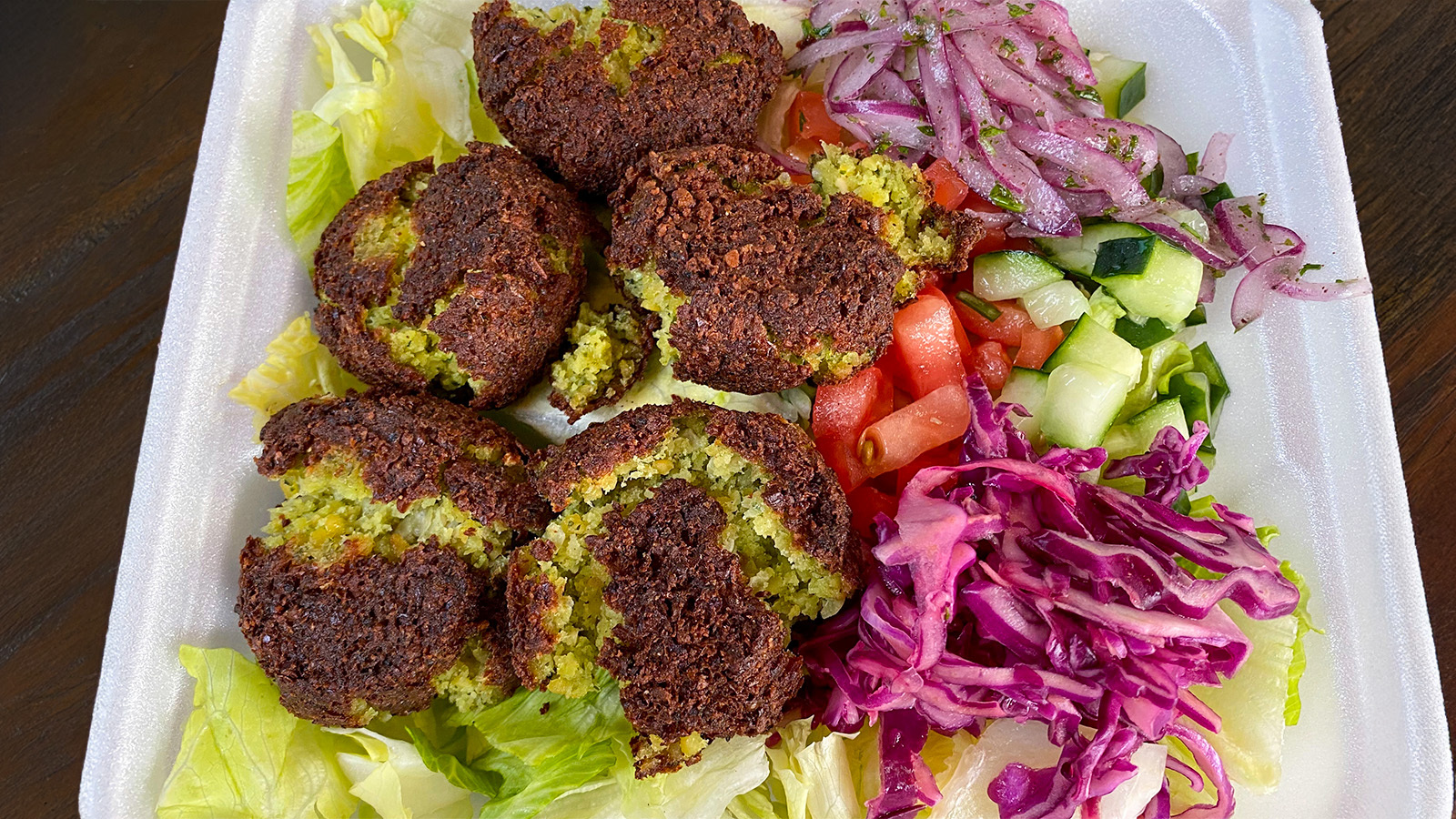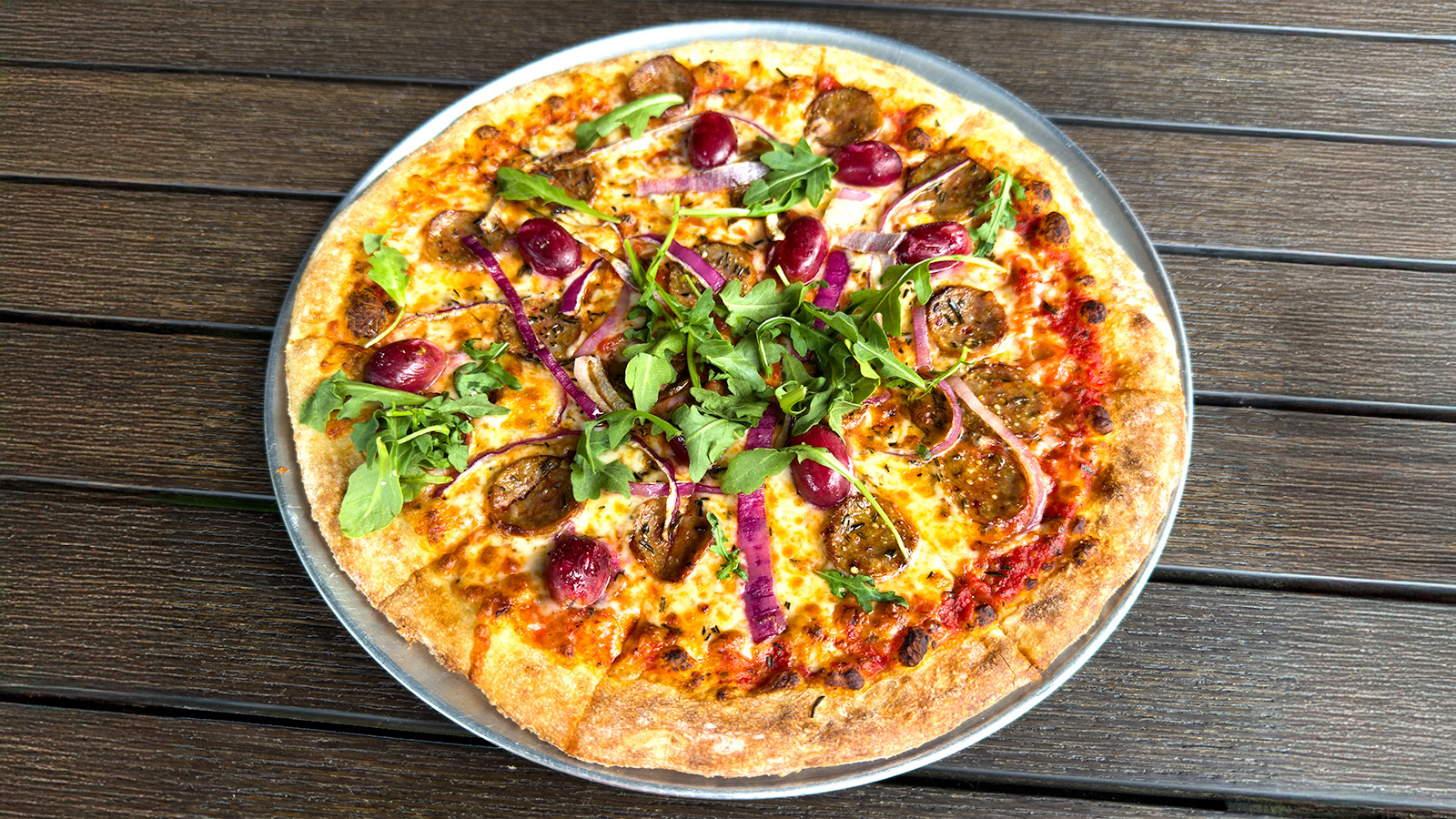April 22, 2022
Colleen Hughes on sustainability behind the bar
Part 3 of our latest Chef’s Takes series highlights one of the most innovative bar programs in Charlotte

Mixologist Colleen Hughes behind the bar at Supperland. Photo by Allie Papajohn
We at UP are rounding up some of Charlotte’s best to give their best take on everything from devilishly good deviled eggs to the crispiest chicken wings. This time, they’re taking a break from the kitchen to chime in on the subject of culinary sustainability.
Earth Day is April 22, but it should be observed each day. It’s small changes, collectively, that create impact. That’s why we departed from our regular format for this month’s Chef’s Takes to examine green culinary approaches over three segments, from three Charlotte food and beverage industry pros. Their unique vantage points all strive towards a common goal: turning a carbon footprint into more of a toeprint.
Mixologist Colleen Hughes weaves anti-waste strategies into the fabric of each bar program she oversees: Haberdish, Ever Andalo (formerly Crepe Cellar), Growlers Pourhouse, and Supperland. A member of the national board of directors for the U.S. Bartenders’ Guild, Hughes remains engaged in continuing education, some of which has helped her cultivate a greener workplace. She tries to educate others in her own work environment, too; Hughes is not shy about reminding colleagues to recycle (and to do so the right way). She challenges her bartending staff to come up with unique concoctions, with bonus points for addressing a source of waste.
“I wasn’t even sure at first if sustainability was sustainable,” Hughes says of implementing greener procedures in restaurants. “We are now as waste-conscious as we can be.”
This attention to conservation efforts spiked during the pandemic when she found herself, like so many others, with plenty of time to explore and reinvent everything from her prep to flavors to technique. She even studied at the molecular level to see how she could add more eco-friendly approaches to her craft. When restaurant group co-owner Jeff Tonidandel asked her to return full-time in an even more encompassing role as beverage director, Hughes was ready.
One of the most significant issues she set out to address involved lemons. “We composted and had 100 percent fresh lemon juice each day, but this process still wasted time and produce,” Hughes says. Not-so-fun fact from the U.S. Environmental Protection Agency: “Food is the single largest category of material placed in municipal landfills, where it emits methane, a powerful greenhouse gas.” She took the one hour per day involved with extracting fresh lemon juice — which lasted only one day — and learned how to produce a zesty, yet more shelf-stable lemon stock that lasts one week. Making the stock involves not only the juicy bits of lemon but also its peel and hull membranes. “For every three cases of lemons we were using, we now use one,” Hughes says. Locally-sourced citrus is rare, so this move also decreased the restaurant group’s shipping needs.
She didn’t stop there. Hughes also figured out that using kitchen tools to cook simple syrup just to desired temperature could save energy. “We decreased cooking time for each batch from one hour to twenty minutes,” she says. “And it tastes better.” She installed new glass rinsers that conserve water, too. While you may not operate a drink-slinging operation as robust as Hughes, or at all, she still has practical strategies we can exemplify at home.

Across restaurant concepts, Hughes works to ensure there’s as little food waste as possible behind the bars. Photo by Justin Driscoll
Use every bit of a food item you can. Hughes offers a green apple as an example. “Look at it — how can you utilize every part and in which ways?” She uses the juice in mixes and as an ice that melts and enhances flavor as you drink a cocktail. Read on to find out what she does with the pulp. Another scenario she gives is pineapple: juice becomes a mixer and ice, the core is handy to produce a syrup, and the fronds make a nice garnish. She admits she is still trying to figure out ways to maximize a raspberry.
Compost what you can’t use; repurpose the rest. Instead of purchasing a wide variety of produce that may go to waste, Hughes streamlines by using a single flavor for multiple purposes. For instance, she noticed oranges were one of the biggest areas of unused produce purchased, so she relied more heavily on the versatile strawberry, also sourcing it locally with greater ease. Still, there are inevitably items she and her team cannot use. That’s when she turns to the kitchen, noting they almost always come up with inventive and delicious applications.
Support local agriculture. Hughes turns to Freshlist whenever she can for in-season, locally grown products. Freshlist coordinates with farmers and uses a “harvest to order” model; this helps cut down on food waste and the gas used to ship produce long distances. Plus, the food stays fresher longer.
Integrate more plant-based ingredients. Reducing over-reliance on animal food sources is a way to reduce overall ozone-depleting gas emissions. While experimenting, Hughes became a chemist of sorts. She discovered she could create an “egg white” foam alternative from green apple pulp by turning it into a concentrated pectin, straining it, and incorporating a vegan foaming agent. Voila, vegan.
Let accoutrements live to see another day. Hughes acknowledges that tiny umbrellas and cocktail napkins are cute, but these days she decks out cocktails with more environmentally-gentle products. In lieu of quickly-tossed garnishes and napkins, she uses Botanist Gin paper coasters (that can be planted with their embedded basil seeds) and hand-crafted paper butterflies that clip onto a glass’s edge. She has even spotted customers walking around with the butterflies pinned to their clothing.
Say farewell to single-use plastics. The recyclable, reusable plastic straws Hughes now uses at the bar wash and wear very well. She also likes to buy Herb’s Honey, a local purveyor who expressed confusion but granted her request to package her large orders in bigger (and fewer) jugs instead.
See what Hughes is stirring up next on Instagram.
More from this series:
(Part 1) Matt Martin, Director of Culinary Operations at Freshlist and Former Executive Chef of Fern
(Part 2) Ken Aponte, Executive Chef of Alchemy
This story has been unlocked by the Tonidandel-Brown Restaurant Group. Paying to unlock a story offsets the subscription revenue we rely on to continue telling Charlotte’s food stories. Want to unlock a news story? Reach out to us.











